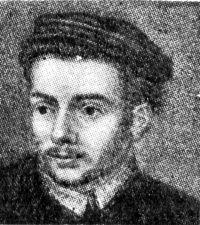
John Skelton
1460
- 1529
John Skelton, also known as John Shelton (c. 1463 – 21 June 1529) was an English poet, playwright, priest, and tutor to King Henry VIII of England. Writing in a period of linguistic transition between Middle English and Early Modern English, Skelton is one of the most important poets of the early Tudor period. As a poet, Skelton is mostly remembered for his invectives and satires, often written in a highly irregular metre now called Skeltonics. However, Skelton's poetic ouevre (which survives only in part) encompasses a wide range of genres, including dream vision, parody, ballad, panegyric, and Latin elegiac. He also wrote the first secular morality play in English, Magnyfycence, an important landmark in the development of English Renaissance theatre.
Skelton served as a tutor to the young Henry VIII, and lived in his court for much of his adult life. He took up the style of poet laureate, possibly after appointment by Henry, and was rector of Diss for nearly 30 years. Skelton was involved in the Grammarians' War, and, in his last years, came into conflict with Thomas Wolsey. Fearing for his life, he took sanctuary in Westminster, where he died in 1529. He was buried in St. Margaret's Church, although no trace of the tomb remains.
As a poet, Skelton's reputation has been mixed. Though very popular in the decades after his death, by the late 16th century his reputation had declined. Derided by Alexander Pope as "beastly", it was only in the 20th century that his work began to be seen more favorably, where his exponents include W. H. Auden and C. S. Lewis.
Source :
Wikipedia
Filter




